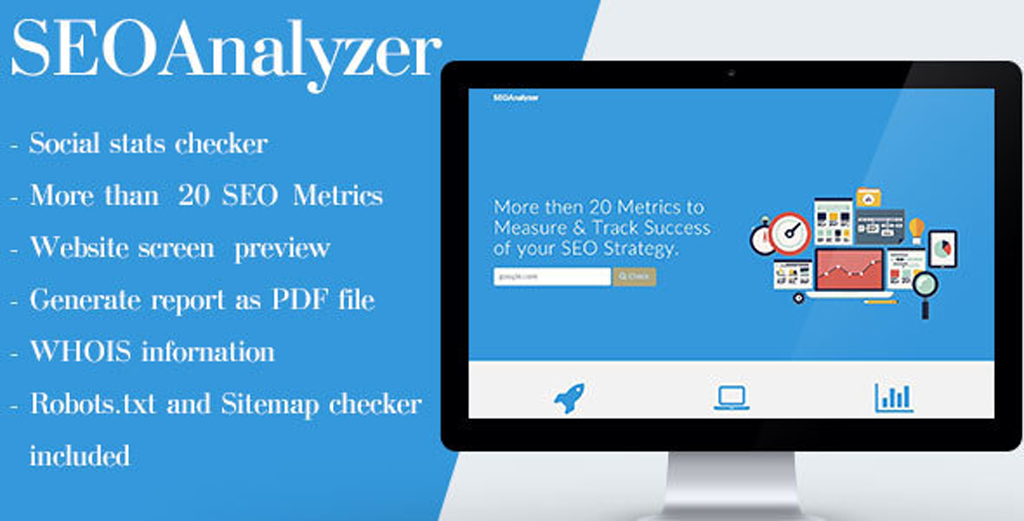Free Website Checker and Speed Test by Pittsburgh SEO Services

If a site takes more than 3 seconds to load, 40% of visitors abandon it.
Pittsburgh SEO Services offers free website speed test services to help you minimize webpage loading times. Our highly experienced web developer and the designer team know just what it takes to clean your website’s code, streamline content delivery schemes and make your multimedia assets lean without compromising the look and feel you want for your pages.
You may have an eye-catching website, but if it takes too long for the average browser to load it, you’ll have plenty of frustrated users who’ll flee your domain. This is especially true in an era when mobile browsing is king. If less powerful devices running on wireless internet can’t load your content quickly enough, they’ll look for other websites that can.
What is Website Speed?
In general, more complex designs with heavier image assets take longer to load. Website speed is the rate at which a website’s pages load fully on browsers. The shorter the load times, the faster the website is. Alternatively, simpler designs with fewer visual elements take less time to load.
Factors That Affect Website Speed:
The good news is that you have control over all the factors that affect a website’s overall speed.
- Cleanliness of Code:
Dirty code is code that either serves minor functions or is unnecessary. It can usually be replaced with more efficient code or removed altogether if it’s not needed. As a result, browsers will be able to load the webpage in a shorter amount of time since there will be less code to read and render.
- Quality of Hosting:
It is important to note that not all hosting companies are built the same. Some are better at delivering stability, security, and faster data transmission than others. Read reviews, and message boards, and ask your developer for advice when selecting a hosting service provider.
- Widgets and Plugins:
You can add functionality to your website without having to code it yourself. Although this is generally a positive thing, you should be aware that each plugin and widget adds a lot of code to your website, which means that your servers will have to transfer a lot of data to your users. You should only use extensions that are absolutely necessary and not poorly coded ones that will bloat up your website.
- Image File Sizes:
Make sure that you only upload the image sizes you need. Image files are usually the heaviest assets on web pages. To minimize their weight, use light file formats such as JPEG, WNG, or WebP.
- Excessive Redirection:
Redirects are a vital part of running a website, as they are used for replacing pages in a different file path. Although this is generally not a problem when only used sparingly, too many can heavily impact your server’s CPU and memory usage, using up the bandwidth that should be attributed to other browsing activities. The end result will be slower response times and a slower overall user experience.
- Excessive use of Code:
Not all code can be read by browsers or search engine bots at the same speed and efficiency. Efficiently written HTML5 is easy to read, but CSS and JavaScript are harder to read. It is common for these elements to slow down load times if they aren’t used in moderation.
Your website’s loading speed is important:
The importance of your website loading speed is now more vital than ever. For your website to convert and encourage users to return, it must provide a good user experience. User experience starts with how quickly your website loads, so its importance cannot be overstated.
- There Is More Impatience Among Modern Users:
In the last few decades, as technology has advanced, so has the speed at which we expect it to work. Few people enjoy waiting for a page to load, especially if they have only mild or passing interest in the page they are viewing.
- The longer it takes for a page to load, the more likely they are to lose interest. Regardless of whether their interest is sufficient to cause them to wait for the initial loading, subsequent slow loadings as they navigate your website will negatively impact their experience.
- According to Google research four years ago, 53% of mobile website visitors would leave the site if it didn’t load within three seconds.
- Website loading speed and SEO:
The purpose of including the load speed measurement in Google’s search ranking algorithms is to improve the user experience by making sites load faster.
- According to internal Google studies, people spend less time on a site that is slow to respond.
- Bounce rates and conversions:
Conversions are the name of the game, so you need to provide landing pages and other pages that entice potential customers to browse your content. To start things off, it’s not a good idea to make them wait longer than they’d like.
The loading speed of a website is one of the main reasons why visitors bounce. A bounce is a person who views only one page on a site before leaving. Bounce rates are the number of people who visit your site and leave without exploring any other pages. A slow load speed is one of the most common reasons for a bounce.
